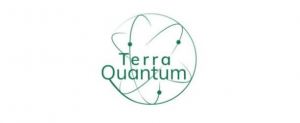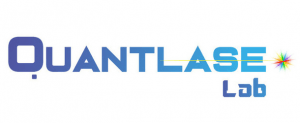Quantum News Briefs October 3: New Research Finds Quantum Software Makes Complex Chemistry Research Process Up to 20 Times More Efficient and Could Cut Drug Development Costs • D-Wave Introduces Service-Level Agreements for Leap Quantum Cloud Customers in Production • UNSW Delivers Atomic Quantum Computing Breakthrough • How Quantum Photonics Are Shaping The Future Of Healthcare •

New Research Finds Quantum Software Makes Complex Chemistry Research Process Up to 20 Times More Efficient and Could Cut Drug Development Costs
 Terra Quantum, a global leader in quantum technology, announced on October 3 a new method for predicting molecular structures with improved efficiency and speed in a joint research effort with Prof. Dr. Christoph Bannwarth of RWTH Aachen University, the largest technical university in Germany. The quantum tensor network-based approach demonstrated a 5X to 20X speed-up in determining the molecular structure, over classical approaches.
Terra Quantum, a global leader in quantum technology, announced on October 3 a new method for predicting molecular structures with improved efficiency and speed in a joint research effort with Prof. Dr. Christoph Bannwarth of RWTH Aachen University, the largest technical university in Germany. The quantum tensor network-based approach demonstrated a 5X to 20X speed-up in determining the molecular structure, over classical approaches.
The paper, “Tensor Train Optimization for Conformational Sampling of Organic Molecules” was just published on ChemRxiv and opens the path to applications in the materials science and pharmaceuticals industries.
Understanding structures of molecules is often a bottleneck in the drug discovery process. It is generally costly and time consuming to attain high quality molecular structure data. Terra Quantum’s approach generates molecular structure datasets with faster, more computationally efficient and accurate methods.
D-Wave Introduces Service-Level Agreements for Leap Quantum Cloud Customers in Production
 D-Wave Quantum Inc. (NYSE: QBTS), a leader in quantum computing systems, software, and services and the world’s first commercial supplier of quantum computers announced October 3 the introduction of service-level agreements (SLAs) specifically tailored for Leap™ quantum cloud service customers who are transitioning applications into production. By establishing formal SLAs, D-Wave stands behind the high levels of availability, reliability and scalability of its Leap cloud service and its ability to support requirements for commercial-grade quantum and hybrid-quantum applications as customers move into production deployments.
D-Wave Quantum Inc. (NYSE: QBTS), a leader in quantum computing systems, software, and services and the world’s first commercial supplier of quantum computers announced October 3 the introduction of service-level agreements (SLAs) specifically tailored for Leap™ quantum cloud service customers who are transitioning applications into production. By establishing formal SLAs, D-Wave stands behind the high levels of availability, reliability and scalability of its Leap cloud service and its ability to support requirements for commercial-grade quantum and hybrid-quantum applications as customers move into production deployments.
The Leap quantum cloud service—providing real-time, secure access to D-Wave’s annealing quantum computers and hybrid solvers since 2018—has proven to be a production-grade service on which customers can run business-critical workflows. D-Wave’s monitoring data confirms that the Leap service has consistently exceeded 99.9% availability for its Solver API and its aggregated set of annealing quantum computers over the past two years, meaning that the service is highly responsive even during periods of high demand.
In Other News: InnovationAUS Reports “UNSW Delivers Atomic Quantum Computing Breakthrough”
 Researchers at the University of New South Wales have claimed a world-first breakthrough by demonstrating provable quantum entanglement between two atoms in silicon, a crucial step for scaling quantum computers according to Brandon How in his October 2 article in Innovation.AU.
Researchers at the University of New South Wales have claimed a world-first breakthrough by demonstrating provable quantum entanglement between two atoms in silicon, a crucial step for scaling quantum computers according to Brandon How in his October 2 article in Innovation.AU.
Entanglement between at least two qubits is the phenomena that enables information to be encoded and processed in a quantum computer. This was demonstrated by the UNSW-led team between two electrons on separate phosphorus atoms.
The phosphorus atoms were implanted on a silicon chip similar to those in modern day computers and electronics. It potentially enables future manufacturing scale up with existing chip fabrication techniques.
Research team lead Professor Andrea Morello explained that entanglement is “the real gamechanger” of quantum computing as it allows the creation of “digital codewords that really do not exist in a classical computer”.
In Other News: Forbes Council Member Describes “How Quantum Photonics Are Shaping The Future Of Healthcare”
 Quantum photonics have wide-ranging applications in healthcare that promise to transform diagnostic and treatment options according to Dr. Pramod Kumar, Director of Research & InnovationQuantLase Laboratory, Abu Dhabi United Arab Emirates; in his October 2 Forbes article.
Quantum photonics have wide-ranging applications in healthcare that promise to transform diagnostic and treatment options according to Dr. Pramod Kumar, Director of Research & InnovationQuantLase Laboratory, Abu Dhabi United Arab Emirates; in his October 2 Forbes article.



















